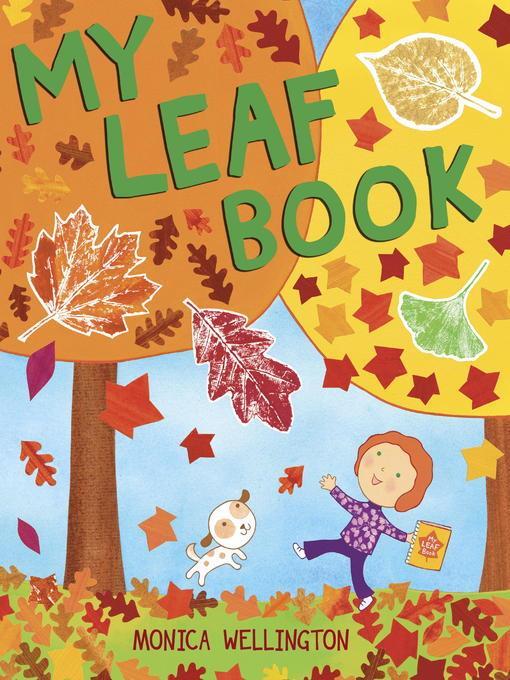
My Leaf Book
فرمت کتاب
ebook
تاریخ انتشار
2015
Lexile Score
450
Reading Level
0-2
ATOS
2.9
Interest Level
K-3(LG)
نویسنده
Monica Wellingtonشابک
9780399185915
کتاب های مرتبط
- اطلاعات
- نقد و بررسی
- دیدگاه کاربران
نقد و بررسی

August 3, 2015
Equipped with a guide to trees, a girl with a crown of ginger hair walks through an arboretum, identifying and collecting a variety of leaves, including honey locust, sweet gum, linden, and maple. Wellington (Colors for Zena) alternates between scenes of the girl on her walk and those of her at home, where she makes crayon rubbings of the leaves in her Leaf Book. Rubbings and photocopies of leaves appear throughout Wellington’s mixed-media images, while tiny sidebars offer details about the trees and leaves presented. The girl’s clipped narration (“Oak leaves are strong. They are good for my art projects. I make leaf prints in many colors”) is perhaps better suited to children learning to read on their own than to story-time sessions. Regardless, many readers are likely to be inspired to turn their own autumnal observations into creative projects. Ages 3–5.

July 1, 2015
Wellington turns a leaf-identification book into a visual display of fall color and shape. Readers learn along with a young redheaded girl as she visits an arboretum to collect leaves for her own leaf book. Alternating double-page spreads show each tree in the arboretum and the girl cataloging the leaves and sometimes doing something with them-leaf rubbings, drawing pictures, adding the leaves to her book. Readers are treated to a look at what she's written in her book, and small fact boxes give further information about the leaf, its tree, and how to identify it, including some vocabulary-"simple," "compound," "leaflet." The pictures are the real draw, however. Done with gouache, watercolor, and collages of rubbings, prints, and photocopies, they are a mix of realistic and whimsical. The illustrations of the full trees break down both the tree and its leaves into basic geometric shapes. Trees are represented as rounded, often circular or oval masses of leaves on skinny, rectangular trunks. Gingko leaves are triangles, sweet gum leaves are stars, and there are other familiar shapes as well; these patterns are writ small in the leaves and large in shapes that take up most of the trees' canopies. While its true usefulness as an identification guide may be questionable, there's no doubt it will capture children's attention and hopefully have them searching for their own specimens and creating leaf books of their own. (Informational picture book. 4-8)
COPYRIGHT(2015) Kirkus Reviews, ALL RIGHTS RESERVED.

December 1, 2015
PreS-Gr 2-One of the most visible indicators of autumn are falling leaves. The narrator decides to take those leaves and create her very own leaf book to commemorate the season. Once she gathers them, she uses a tree guide to identify the tree and record the name. As each leaf is examined, Wellington provides additional facts about trees and leaves (including vocabulary such as lobes and compound leaves), which will help readers create their own leaf books. The author does a terrific job combining subjects here-story is interwoven with fact, and science is interwoven with art. As the leaf-gathering continues, the girl uses leaves to create prints and rubbings as well as adding them to her book. The illustrations are created in bright autumnal colors. Each type of leaf is depicted in color photocopies as well as other artistic methods. The trees scattered throughout have simplified leaf shapes, but the leaves themselves are re-created in detail. VERDICT There can never be enough seasonally appropriate books for classrooms and libraries, particularly when they offer information readers can use.-Susan E. Murray, formerly at Glendale Public Library, AZ
Copyright 2015 School Library Journal, LLC Used with permission.

























دیدگاه کاربران